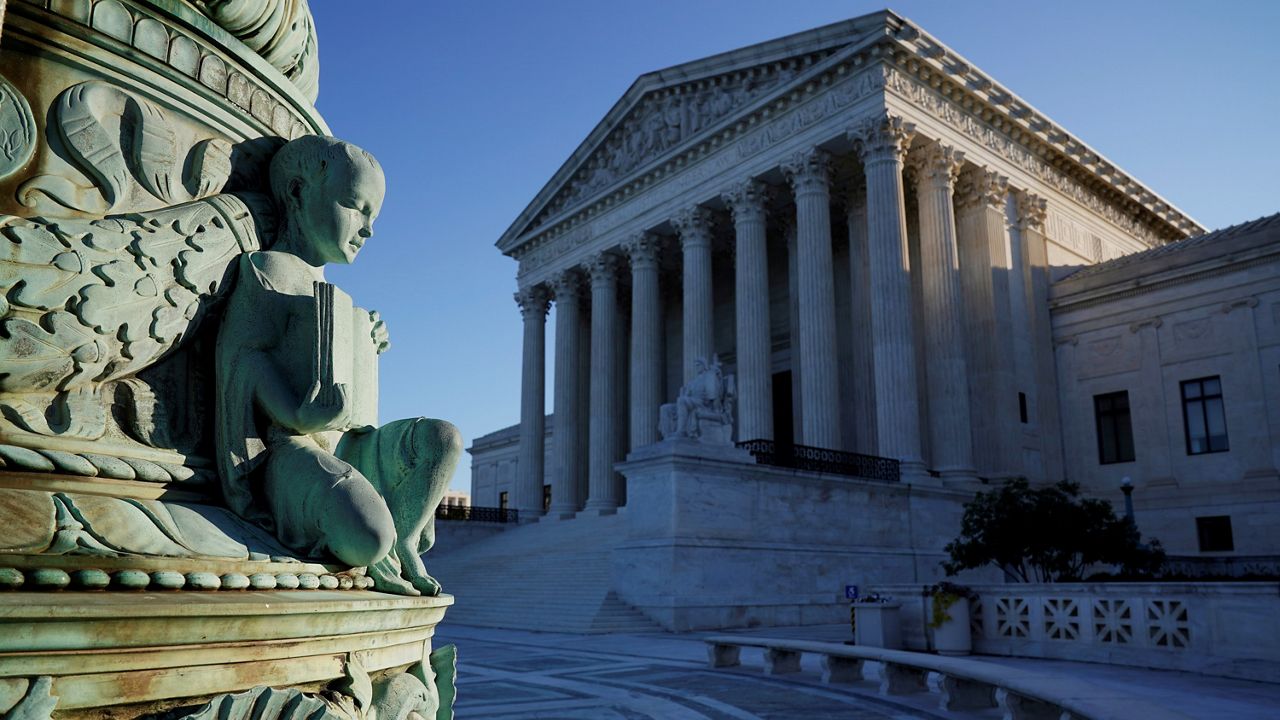The Supreme Court has rejected an appeal from former President Donald Trump to block the National Archives from releasing his White House records to the House Select Committee investigating the Jan. 6 riot at the U.S. Capitol.
The unsigned order from the high court on Tuesday formally brings Trump's efforts to block the records to an end.
The move comes after the Supreme Court last month upheld the rulings of two lower courts, which determined that the panel had a "unique legislative need" to review the documents, dealing a blow to the former president.
Trump attempted to shield the records, claiming executive privilege. President Joe Biden has waived any claims of executive privilege in this case.
"The limited interest the Committee may have in immediately obtaining the requested records pales in comparison to President Trump’s interest in securing judicial review before he suffers irreparable harm," Trump's attorneys wrote in the petition to the court in late December.
Following the high court’s action, there is no legal impediment to turning over the documents, which are held by the National Archives and Records Administration. They include presidential diaries and visitor logs.
Alone among the justices, Clarence Thomas said he would have granted Trump’s request to keep the documents on hold.
Trump’s attorneys had asked the high court to reverse rulings by the federal appeals court in Washington and block the release of the records even after President Joe Biden waived executive privilege over them.
In an unsigned opinion, the court acknowledged there are “serious and substantial concerns” over whether a former president can win a court order to prevent disclosure of certain records from his time in office in a situation like this one.
But the court noted that the appeals court determined that Trump’s assertion of privilege over the documents would fail under any circumstances, “even if he were the incumbent.”
Trump spokespeople did not immediately respond to a request for comment.
The National Archives has previously said that the records Trump attempted to block include "a draft Executive Order on the topic of election integrity," presidential diaries, visitor logs, speech drafts and handwritten notes “concerning the events of January 6" from the files of former chief of staff Mark Meadows.
The House in December voted to hold Meadows in contempt of Congress after he ceased to cooperate with the Jan. 6 Committee — making it the first time the chamber has voted to hold a former member in contempt since the 1830s.
Democrats quoted at length from Jan. 6 text messages provided by Meadows while he was cooperating with the committee.
“We need an Oval Office address,” Donald Trump Jr. texted, the committee said, as his father’s supporters were breaking into the Capitol, sending lawmakers running for their lives and interrupting the certification of Joe Biden’s presidential victory. “He has to lead now. It has gone too far and gotten out of hand.”
Trump Jr. added, “He’s got to condemn this s*** ASAP.” In response to one of Trump Jr.’s texts, Meadows said: “I’m pushing it hard. I agree.”
Members of the committee said the texts raised fresh questions about what was happening at the White House — and what Trump himself was doing — as the attack was underway. The committee had planned to question Meadows about the communications, including 6,600 pages of records taken from personal email accounts and about 2,000 text messages. The panel has not released any of the communications in full.
The House committee on Tuesday also issued subpoenas to Rudy Giuliani and other members of Donald Trump’s legal team who filed bogus legal challenges to the 2020 election that fueled the lie that race had been stolen from the former president.
